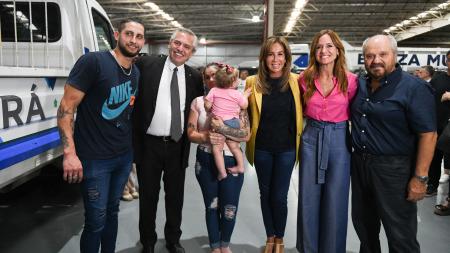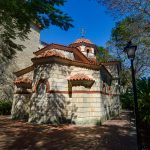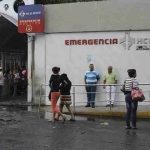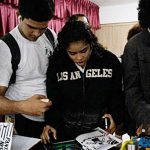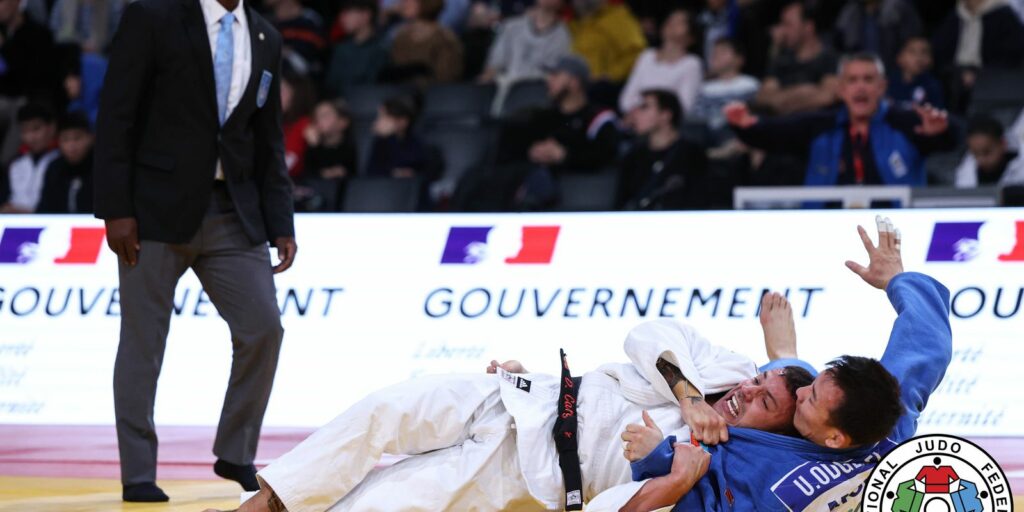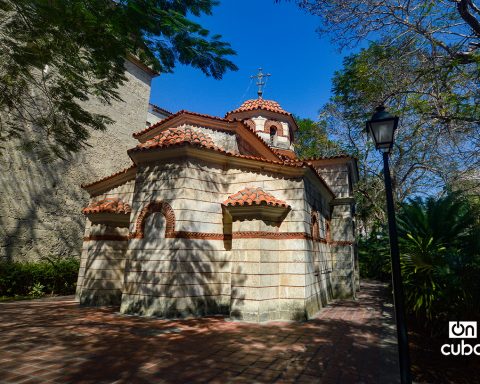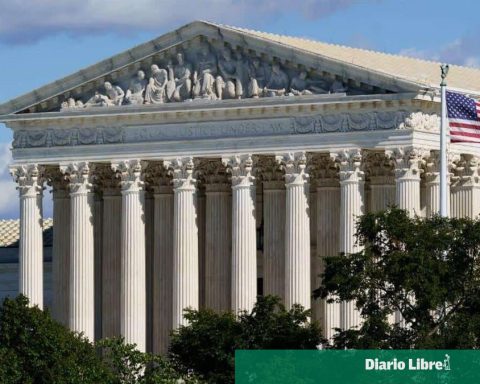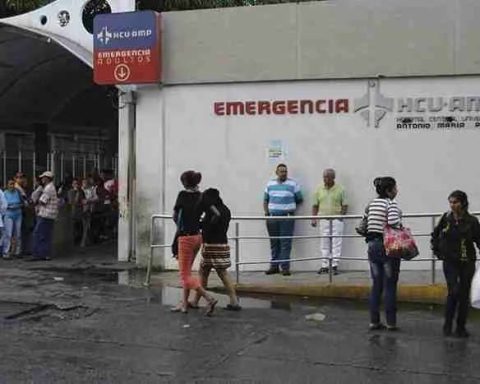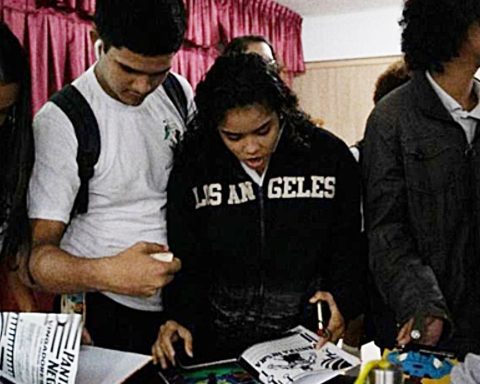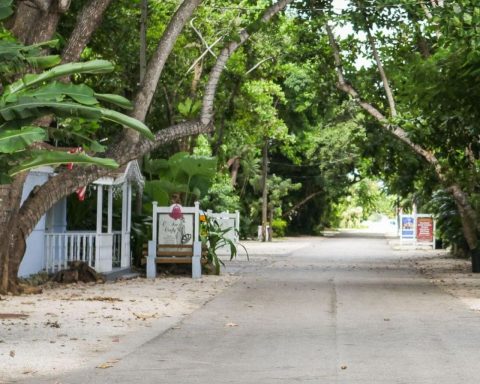President Alberto Fernández will advance in the coming days in the formation of a national political table of the Frente de Todos, an objective that he planned last year and that began to intensify this week after the request in this regard from the Buenos Aires Justicialista Party (PJ), that brought together its greatest exponents in the Buenos Aires town of Merlo.
“We have to build it and put me in charge,” the President had outlined out loud to one of his close friends at the Casa Rosada on December 29 when referring to that political table that he imagines “made up of those of us who are members of the Frente de Todos “, as he was able to reconstruct Télam.
In this framework, the Chaco governor Jorge Capitanich called last Tuesdayin the preview of the meeting of the Buenos Aires justicialismo that would take place that same day in Merlo, to constitute “a political articulation table” of the pro-government coalition in view of this year’s presidential elections.
With this logic, Capitanich affirmed in statements to El Destape Radio that until now “an organic framework could not be established for the operation of the FdT.”

“Today we are facing the prospect of an electoral process without a definition of political strategy. There is a lack of a political articulation table, which is possible and necessary to do,” he exhorted.
For her part, the presidential spokeswoman Gabriela Cerruti reaffirmed last Thursday the need to specify this call and announced that the head of state himself is already working on it, since “as president of the PJ, he is analyzing the formation of a table that works on the electoral strategy,” he stressed.
And on the same point, he expanded: “We are beginning to see those debates and alignments that are part of everything that has to happen in a normal electoral process, in which we are all going to work to guarantee that the triumph of the right does not return in Argentina, which made us go back so far”.
Besides, Cerruti considered that the discussion of these issues is “welcome” in the ranks of a coalition like the FdTas it is a year in which presidential elections will be held, although at the same time he claimed that this practice does not include grievances or “press operations.”

In this sense, the spokesperson stressed that as long as the exchange takes place “in the framework of a debate of the best ideas and does not include personal grievances or press operations, which should be outside the normal strategy of political debate, welcome “.
In any case, the names in charge of making the table work and be productive have not yet been defined, for which they must assume the task as interlocutors of the President or his most trusted officials, spokesmen for three offices of the national Executive told Télam.
The agreement of the Buenos Aires PJ
At the recent meeting in Merlo, the Buenos Aires PJ table agreed to accelerate the political order with the priorities set on preserving the unity of the FdT and deepening the coordination of the different areas of the Government, in the search to improve management and achieve better economic indexes .

The meeting last Tuesday had present, among many leaders of Peronism, the national deputy and head of the Buenos Aires PJ, Máximo Kirchner; the Minister of Economy and leader of the Frente Renovador, Sergio Massa; to his pair of Interior, Eduardo ‘Wado’ de Pedro; and the Buenos Aires governor, Axel Kicillof.
In the FdT it is clear that the immediate objective is to give a message of leadership, seek political stability and internal peace, while continuing with a strong axis in management and strengthening the territorial presence in the province of Buenos Aires with periodic meetings. of the political and technical teams, the latter with the idea of ”meeting every 15 days”, according to what they confided to this agency from the Minister of Economy.
In addition to Massa, two other members of the national Cabinet with weight in the territory, such as the head of the Public Works portfolio, were present at the Merlo meeting, Gabriel Katopodisformer mayor of the municipality of San Martín between 2011 and 2019, and that of Territorial Development and Habitat, santiago maggiotticommunity chief on leave in Navarro, a position he also held since 2011 and -if applicable- until 2020.
Within this framework, the leader of the Evita Movement Fernando “Chino” NavarroSecretary for Relations with Civil Society and Community Development of the Chief of Staff, who has an office in the Casa Rosada, admitted that he had not yet been able to talk with Alberto Fernández about the formation of the political table.
“I didn’t talk about it with the President,” said Navarro, who in any case hoped that “hopefully the political table will help.”

For his part, the national deputy for Chaco Juan Manuel Pedrini, another member of the FdT, came out to nominate Capitanich as a presidential candidate in the event that the head of state desists from running for re-election and that Vice President Cristina Fernández de Kirchner does not modify your position of not being a candidate for anything.
At this point, Pedrini stressed that “any possibility of dialogue is good, it is welcome” and considered that “the problem is resolved with political leadership.”
“Alberto Fernández is the one who should lead politically, he is the president of PJ and he is going to mark the political line to follow”the deputy from Chaco told Télam, and estimated that “nobody is going to deny dialogue with the President.”
Once the political table is set up, it will be time to discuss a key issue for the electoral organization of Peronism: go with different candidates or agree on a single list?
The President himself had said towards the end of last year to the C5N channel that the presidential candidate of the FdT in the next elections will be “the one who meets the best conditions”, and based on this criterion he stated that whoever wants to present himself as the ruling party in the PASO you will be able to do it.
This week, spokeswoman Cerruti recalled that “more than a year ago”, on November 17, 2021 at the act for Militancy Day in Plaza de Mayo, “The President said that we were going to go to a STEP this year, where everyone was going to be able to express themselves and choose the candidate that best represents us.”
A similar position was promoted by ‘Chino’ Navarro, who advocated the realization of the PASO, in which -as he proposed- “two candidates for election” compete.

Another voice that defended the need for the primaries was that of Capitanich himself, for whom “leadership must arise from the popular will that is expressed in the PASO.”
The national deputy for the Chaco FdT Juan Manuel Pedrinia close associate of the governor, insisted on Friday that the PASO “are very necessary” to “generate authentic leadership.”
Once the political table has been formed, the competition for the PASO will begin to take shape; it will be the moment in which the presidential nominations will emerge -no longer mysteries-.
On May 10, the President said in Madrid, during an interview with the Spanish public channel RTVE, that he would run for re-election: “Yes, absolutely, with all the necessary forces so that Argentina stands up. And I’m going to stand up”, he replied, although from there he clarified in various media that it was not yet the time to be “thinking about it”.
While, Vice President Fernández de Kirchner withdrew from going for her third term but in recent weeks an “operative clamor” began to grow on the part of various political, union and social groupswhich on March 24th will come together in the mobilization of Remembrance Day under the slogan “Democracy or mafias”.
Ultimately, Massa stays, at least in public, away from that possibility.
“It is incompatible to be Minister of Economy and a candidate for President,” their spokesmen reiterated in dialogue with Télam.
In the field of pre-candidates, mention is also made of Axel Kicillofwho, like Capitanich, has the possibility of competing for his re-election, as well as the Minister of the Interior.
Either way, all the protagonists and those who observe their movements admit that it is still too early for definitions.
The electoral schedule is scheduled for June 24, the closing of the lists of pre-candidates and there is still time for confirmations, irrevocable announcements and surprises.

Pedrini: “Capitanich would represent Kirchnerism and the PJ, the majority of the FdT”
The national deputy for Chaco Juan Manuel Pedrini maintained that the governor of that province, Jorge Capitanich, would be the best presidential candidate of the ruling party because “he would represent Kirchnerism and the Justicialista Party, which are the majority aspects of the Frente de Todos”, after Vice President Cristina Fernández de Kirchner will announce that she will not go for any candidacy and in the event that President Alberto Fernández chooses not to go for re-election.
Pedrini told Télam that “We have to see if the President stands” for re-election, but if that does not happen, he stated, Capitanich “is a governor of the Interior who will work for a federal country and who has the support of the PJ governors.”
And along the same lines, he added: “We believe that there are more people who support the eventual candidacy” of the provincial president.
For the legislator, “the reason is that there is a vacant political space in the FdT” after the Vice President’s announcement that her name will not be on any ballot, a statement that the head of the Senate herself later defined as a “proscription” due to the perpetual special disqualification issued against him in the first instance ruling of the Highway case.
In this scenario, Pedrini, a legislator for the FdT of Chaco and very close to the provincial president, assured that the candidate for the official coalition finally “It could be Capitanich” because, he said, it would solve “the problems of political leadership and the deliberative state” that according to him characterize Peronism today.
After the conclave of the Buenos Aires PJ in the Buenos Aires town of Merlo, where the opening of a political electoral table was requested, Pedrini stated that “the problem of driving in the different provinces is solved with a strong candidate” for the Presidency.
And he remarked that the Chaco president “could have that responsibility, not only as a candidate but as a political leader” because -he said- “summarizes those two conditions”, and also “would end this assembly state”, he predicted.
“These are my statements, I did not speak with Capitanich, but the idea is to create a space, referencing his candidacy”pointed out in any way the national deputy for Chaco.
Last Tuesday, Capitanich had told El Destape Radio that President Alberto Fernández “has the right to run for re-election” and considered that in the primary elections “it is not reasonable” for other government representatives who are in office to appear, in reference to the chief of staff, Juan Manzur; the Minister of Economy, Sergio Massa and eventually also the Minister of the Interior, Eduardo ‘Wado’ De Pedro.
“If the candidate is the President, he is the President. Otherwise it will be someone else, but the Government should not be represented by several candidates,” he opined, to later affirm that he “does not disqualify” any pre-candidate but that in his opinion “the leader of the FdT” is Vice President Cristina Fernández de Kirchner and that she has no doubts “that she is the main candidate if she has the will to run.”
However, in his statements Capitanich did not exclude himself from a possible presidential candidacy, although he trusted that he has not yet “a decision made in this regard.”
“It does not depend only on me. I believe that politics is a collective construction. I am oriented towards my re-election as governor of Chaco but I am not going to withdraw from the national political discussion and, above all, from the proposal of ideas”, he completed.
